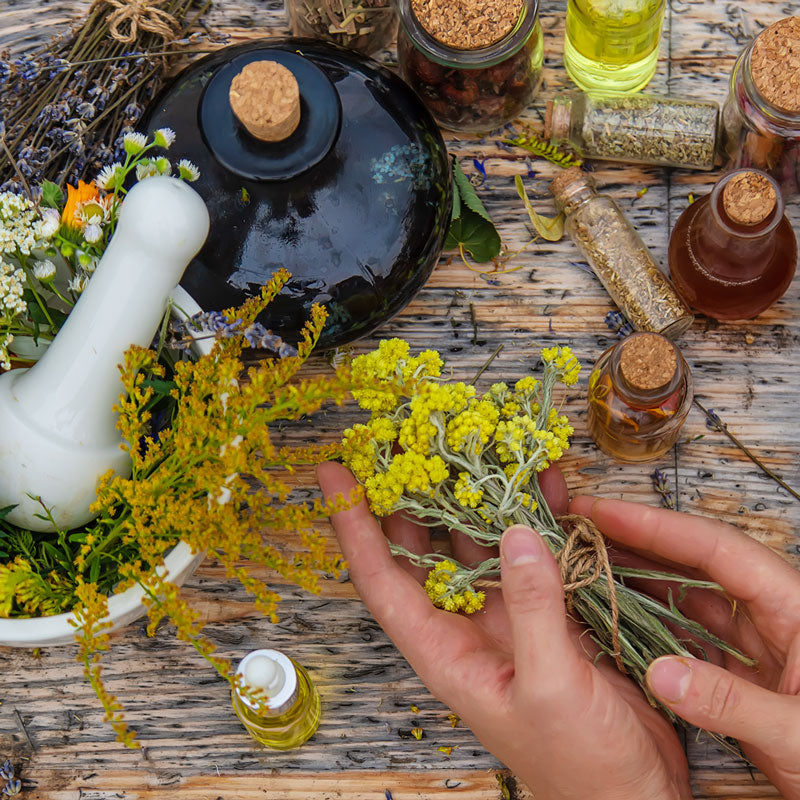Ingredients of Traditional Ayurvedic Herbalism and Their Influence on Modern Wellness

Ayurvedic herbalism, a fundamental part of traditional Indian medicine, has influenced modern herbalism and naturopathy for over a thousand years. This guide explores the history of key Ayurvedic ingredients, their unique characteristics, and how they continue to be used in contemporary wellness. Today, food grade ethanol is a preferred method for extracting beneficial plant compounds, ensuring purity and potency.
Turmeric (Curcuma Longa)
Turmeric has been a staple in Ayurveda for centuries. With a warm, earthy aroma and slightly bitter taste, it is often incorporated into wellness routines. Turmeric’s active compound, curcumin, is widely used in modern herbal practices and nutraceuticals.
Ashwagandha (Withania Somnifera)
Referred to as "Indian Ginseng," Ashwagandha has a distinctive aroma and slightly pungent flavor. In Ayurveda, it is considered a rejuvenating herb. Modern herbalism continues to explore its role in supporting the body's adaptation to everyday stressors.
Amalaki (Emblica Officinalis)
Amalaki, or Indian Gooseberry, has a sour, astringent taste and a fruity aroma. It is traditionally used in Ayurveda as a rejuvenating tonic and is a key ingredient in the well-known formulation Triphala. Today, Amalaki remains popular in herbal wellness formulations.
Neem (Azadirachta Indica)
Neem has a naturally bitter taste and a garlic-like scent. Traditionally used in Ayurveda for its cleansing properties, neem continues to be incorporated into herbal skincare products and wellness formulations.
Shatavari (Asparagus Racemosus)
This herb has a sweet and slightly bitter taste and has long been valued in Ayurveda. Shatavari is often used in herbal formulations focused on wellness and balance.
Tulsi (Ocimum Sanctum)
Also known as "holy basil," Tulsi has a sweet, clove-like aroma. It has been used in Ayurveda for centuries and remains a popular ingredient in herbal teas and wellness products today.

Ayurvedic ingredients continue to influence modern herbalism, offering a connection to time-tested traditions. Their aromatic richness and historical significance have inspired wellness practices across cultures, ensuring their lasting relevance in contemporary herbal applications.
Disclaimer: This content is for educational purposes only and does not make medical claims. Consult a healthcare professional before incorporating herbs or tinctures into your wellness routine.








